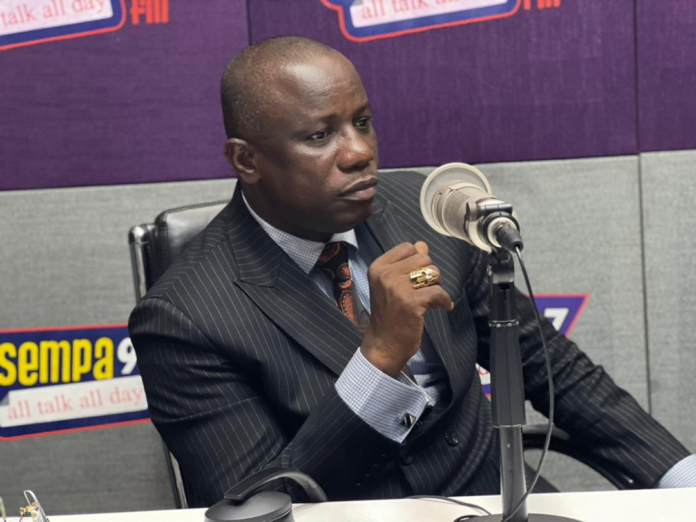Former Defence Minister Dominic Nitiwul has expressed regrets over his tenure, particularly regarding the challenges in achieving lasting peace in Bawku.
Speaking on Joy News’ PM Express on Tuesday, the Bimbilla MP candidly assessed the obstacles he faced in managing security issues in conflict-prone areas.
He highlighted the insufficient resources allocated for security as a major limitation.
“Funding, in the context of what was available as a country and the challenges we faced economically, was not adequate. I must put on record that we didn’t receive our fair share,” Nitiwul stated.
Despite the constraints, he said his administration made significant efforts to maintain peace, though achieving total peace remained elusive.
“We acted, and we did everything right. But I can say that we were unable to bring total peace to Bawku. That will always remain my regret,” he admitted.
Nitiwul explained that resolving conflicts like Bawku’s required a delicate balance between enforcement and caution to avoid harming civilians.
“You cannot unleash the same level of force on your own people as you would on an invading force or enemy combatants. Maintaining peace requires you to enforce it without risking the lives of your own citizens,” he said.
He further revealed that criminal elements exploiting the chieftaincy system complicated efforts to restore order.
“At a point, Bawku became a place where criminals infiltrated the chieftaincy system and used it for their own ends, creating significant problems,” he disclosed.
Nitiwul also referenced President Nana Akufo-Addo’s final State of the Nation Address, noting how the president acknowledged the unresolved peace issue.
“For the president to find space in his last address to mention that total peace in Bawku eluded us shows how important it is and the message he wanted to leave for the incoming government,” he said.
Expressing optimism, he commended President John Mahama’s focus on resolving the Bawku crisis.
“I am happy that the current president has decided to take up the issue and has shown commitment to handling it. I wish him and the government well,” he stated.
Nitiwul emphasized the need for trust-building among factions involved in the conflict.
“The government must engender trust within the people. If you appoint people who are not trusted by both factions, you are going to have problems,” he warned.
He stressed fairness and firmness in government dealings as critical for sustainable peace.
“If people see weakness or perceive the government as being unfair, they will exploit it. The mistrust in Bawku is deep-seated, and resolving it requires a firm and fair approach,” Nitiwul advised.
Reflecting on the historical nature of the conflict, he cautioned against quick fixes.
“This is not a problem you can sweep under the carpet. It has existed for decades, and resolving it requires time, commitment, and a genuine understanding of the complexities involved,” he concluded.
Nitiwul’s reflections offer valuable insights as the new administration seeks to address the Bawku conflict.
ALSO READ:

